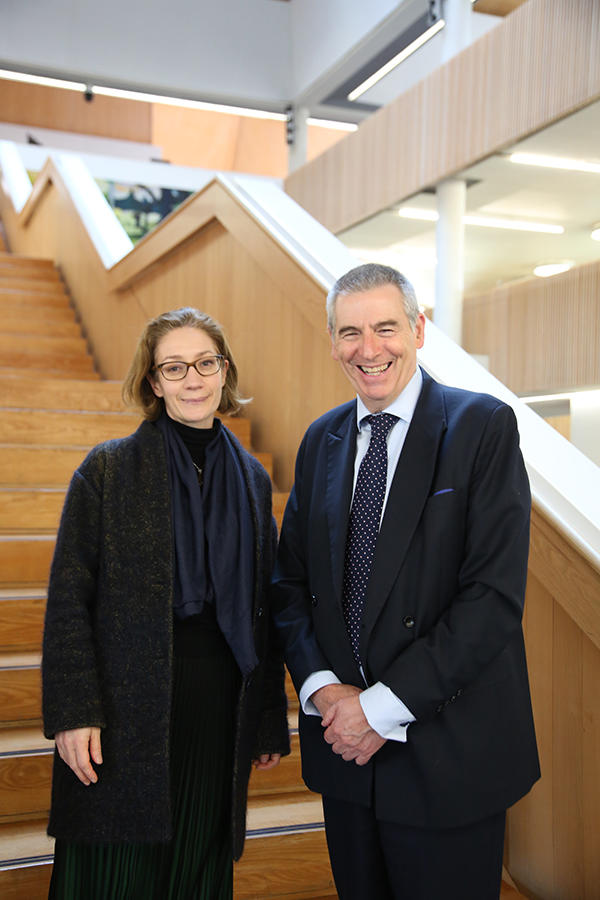Universities Chief Highlights University’s Relationship with City on Visit
Wednesday, 07 December 2022
The Chief Executive of Universities UK, Vivienne Stern MBE, has commended the University of Worcester for putting the community at the heart of what it does.
 Vivienne Stern MBE at The Hive with Professor David Green CBE DL
Vivienne Stern MBE at The Hive with Professor David Green CBE DL
Ms Stern was speaking on a recent visit to see for herself some of the University’s facilities, particularly those that are used by and integrated with the public, including The Hive, a library facility shared with Worcestershire County Council, and the Art House.
“It’s my third visit to Worcester,” she said. “I have seen how it’s changed over the years and it’s a real joy to be in a place where you can see the harmony between a university and the city so clearly,” she said.
This was Ms Stern’s first visit since taking up her new role three months ago within Universities UK, an organisation that advocates for universities across the UK. She was also keen to find out about the challenges facing different universities and how to help them thrive.
She said one of the things that made Worcester stand out was the emphasis it put on its civic role. “It’s particular to Worcester in the sense that it’s so paramount in the way that David [Green, Vice Chancellor and Chief Executive] describes the University. The Hive is iconic within the sector for that. It was the first thing that David showed us and when you hear David talk about the University he often starts with The Hive. For many other universities you’d get the civic mission. Here it feels that’s at the heart of the story.”
Noting the Careers Hub established at The Hive, she commented: “I always love The Hive. The way it really involves parents with new babies and helps people out of education or training excel in their careers. That’s very unusual. I have never been in a university that had one or the other. That’s an image that will stay in my mind. The building is an architectural expression of something quite special about [the University of] Worcester. I think the idea that there are children who aren’t yet able to talk are spending time in a university and will grow up thinking university isn’t a strange place that has nothing to do with them and certainly not an ivory tower, I think that’s wonderful and kind of visionary.”
She also touched on the role that universities like Worcester have in the levelling up agenda. “For me I think levelling up really means you want to try and make parts of the UK that haven’t benefited from economic growth that has been concentrated in London and the southeast able to thrive in the future,” she said. “It seems to me universities are massively important in this. You can see it here. To see what you’re developing here – the car showroom becoming the Art House, but also in the Arches project next to The Hive. If you didn’t have a university, you’d see the impact on the prosperity of the town. You can also attract people who had no idea where Worcester was to come to study here.”
Another aspect that made Worcester stand out, she said, was its work around accessibility and ensuring a strong focus on disability sports. “For me the fundamental purpose of university is about opening up opportunities,” she said. “To have a university whose paramount focus is on ensuring this is an inclusive university - where people with abilities, that could easily be under-developed due to lack of access to the facilities they require, can achieve their full potential - that the University makes that their mission and their business, I think that’s really important. It’s something that historically we haven’t done very well. I guess inclusion means different things to different people, but fundamentally you can feel at Worcester that it’s a central commitment.”
Thirdly, she highlighted its commitment to environmental sustainability. “It has had a long-term focus on this,” she said. “Across the sector this is increasingly a focus, increasingly part of what this sector is trying to play a leadership role in. But Worcester is one of those where the green agenda has been paramount for a long time.”